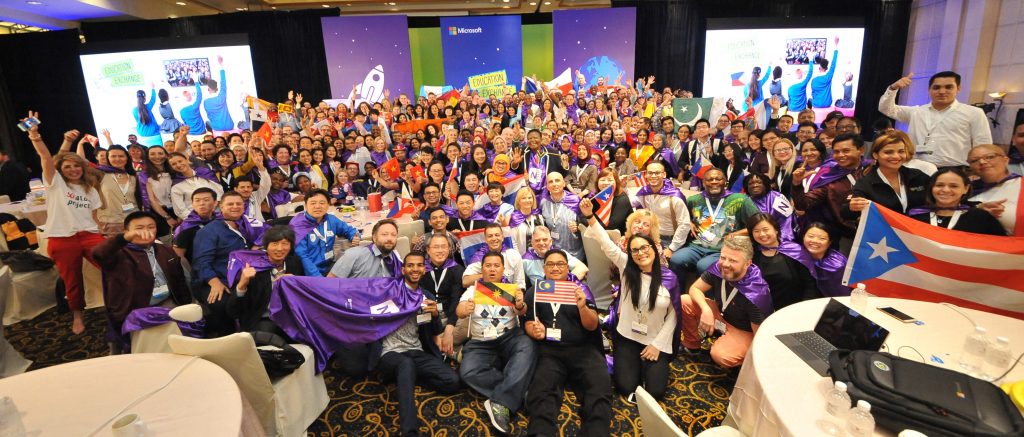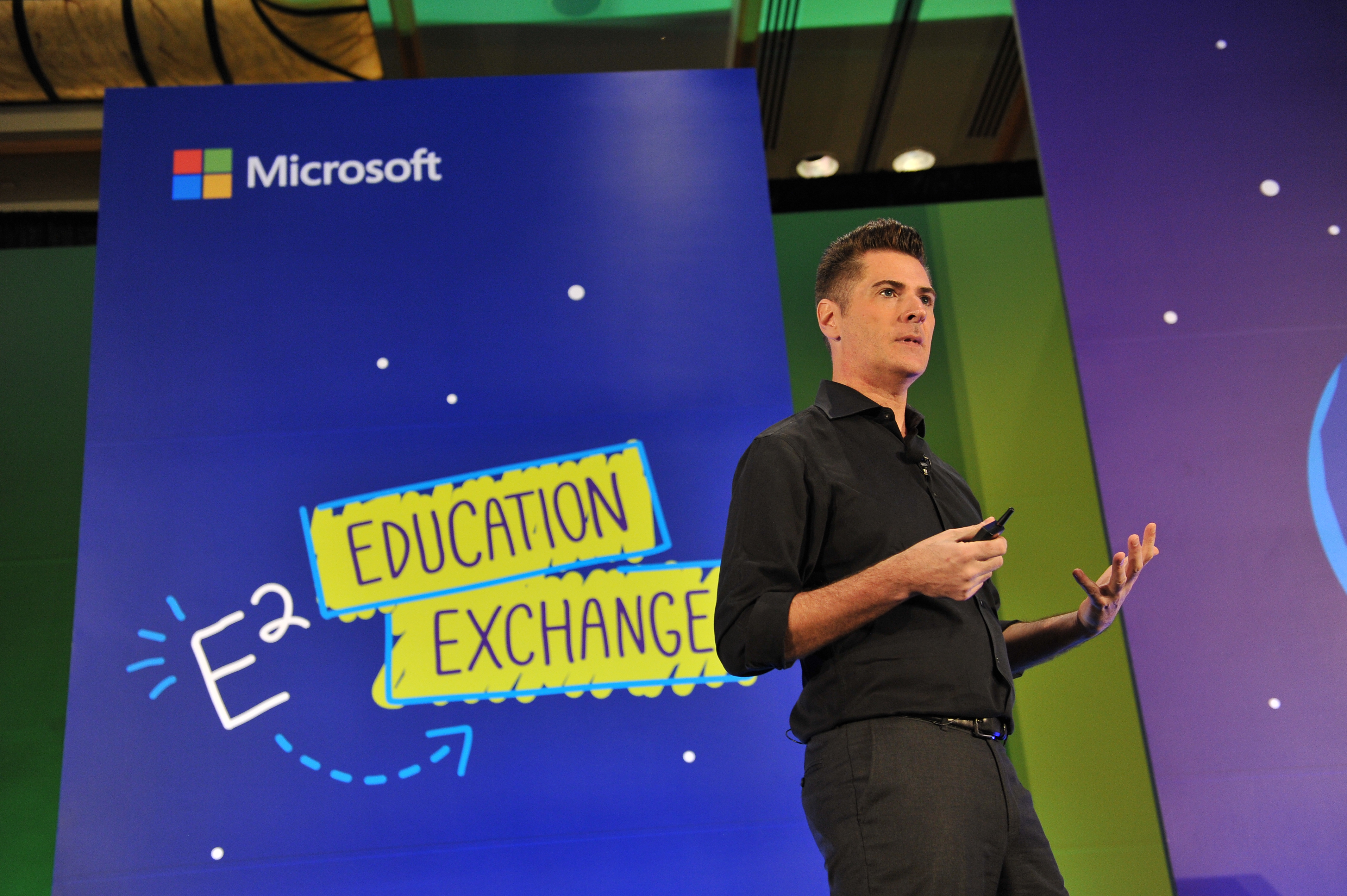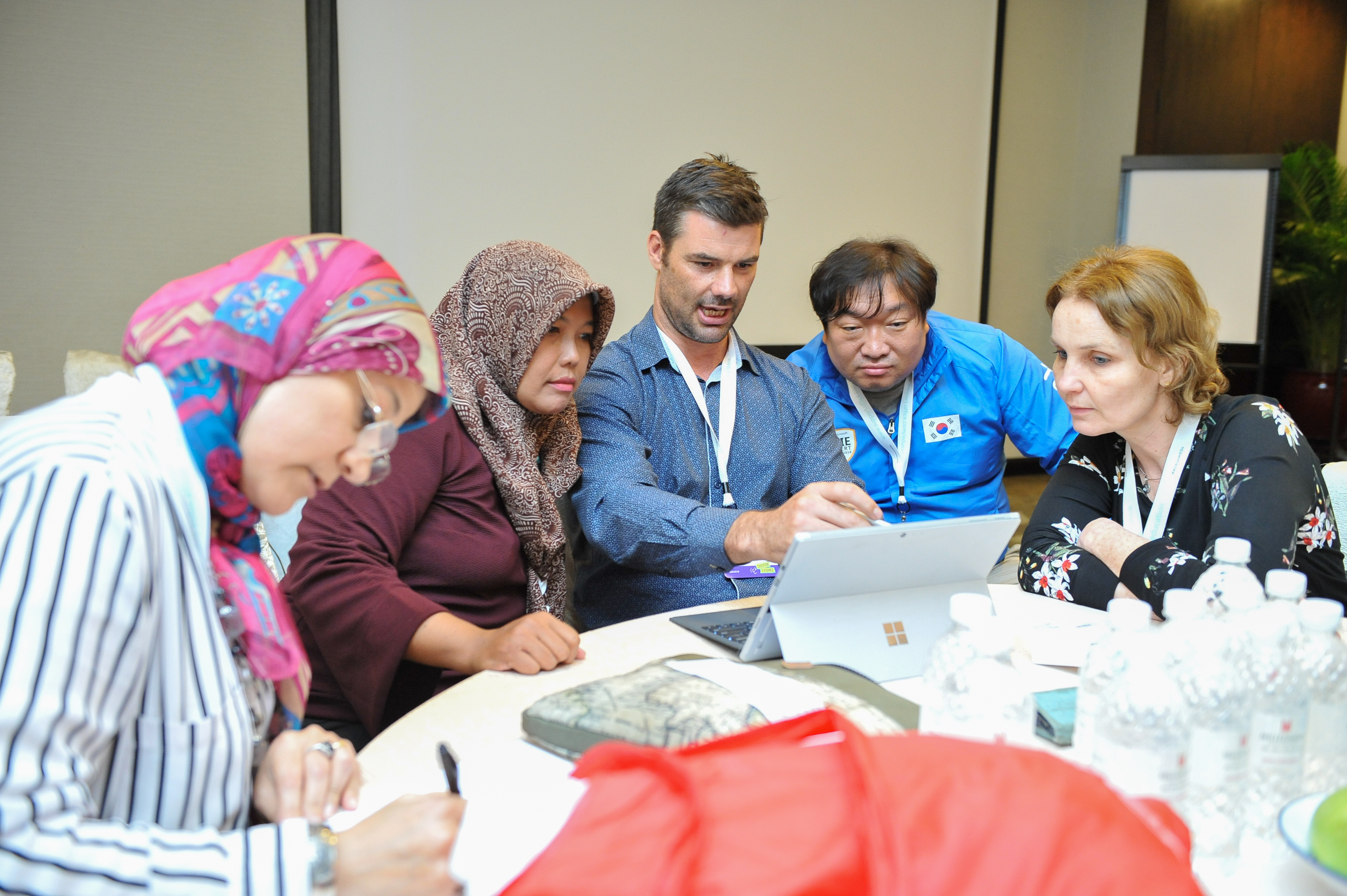
teachers, education, technology policy
Teachers as heroes: Time to change the narrative
Let’s do some time traveling. Let’s take a surgeon from 1918 and place him or her in an operating theater in 2018. It’s almost certain that he or she would have little, if any, idea of how it functioned because the practice of medicine has been transformed by all sorts of innovation – from drugs to x-rays to robots and much more.
Now, let’s take a teacher from a century ago, and put him or her in one of today’s classrooms. While some things might feel different, the odds are he or she wouldn’t feel that much out of place at all and would still be able to practice their essentially timeless profession.
For many, that might suggest two negative things: Education isn’t keeping up with our fast-changing digital world, and students are not getting the skills they need to succeed in the 4th Industrial Revolution.
But Anthony Salcito, Vice President of Education Worldwide for Microsoft, argues that both conclusions could not be more wrong.

“The pace of change has happened very, very quickly. There has been no slow change around education,” he said in a keynote address to hundreds of educators from 91 countries at this year’s Microsoft Education Exchange (E2) conference in Singapore.
Because of that, he thinks it is high-time to change the negative narrative around teachers and education.
“Too often we hear about the struggle of education,” he says. “Too often we see officials, or reporters, criticize the progress going around the world in education. Too often teachers are at the heart of this criticism: teachers’ unwillingness to change; teachers’ fear of technology; teachers stuck in the past. I don’t think that that is true.”
Teachers are “innovative heroes” who play a “timeless role” in inspiring students to pursue their passions, and to accentuate and heighten their talents.
“These are the things that will not change with new technology, with new gizmos,” he says. “How we change our classroom configurations; what size the desks are; how we pivot our chairs – all of that may change based on trends and technology advances etcetera. But what remains is the human and important role that (teachers) play as educators.
“Not only is teaching timeless, but the role (teachers) play in a student’s journey is lifelong.”
And from that, he argues, policy and decisions makers in education need to rethink the consequences and goals of digital transformation in education.

“I meet with school ministers and leaders who are struggling. They’re fearful of the amazing changes they need to make … They feel pressure over jobs; they feel pressure to deliver results and outcomes. They feel pressure because they see technology’s emergence and they have got to figure out a way to make real change inside a classroom.”
But Anthony suggests much of their angst is misguided. For him, a lot of change has already taken place with education. It has been happening very quickly, and the evidence shines out of today’s students.
READ: Celebrating educators globally at Microsoft Education Exchange 2018
“Today’s students think differently about themselves – their role in the world, their interests to solve real problems, to connect with each other globally. They think of themselves as ‘phygital’ – those students don’t see the difference between physical and digital realities. They blend naturally between the two. They use technology and physical tools very, very seamlessly.”
This new “phygital” nature of learning is also being matched in changes happening in workplaces around the world.
“The jobs that we need today have changed. The skills required in companies has changed. So, if any school leader, any educator, any county leader thinks about transformation, they have got to recognize that those core things have changed. Our response should be how do we accelerate, accentuate, support this change.
“The role of teachers has never been more important. It has never been more important to society. The role of innovative teachers has never been more meaningful because the landscape of learning has gotten larger.
“You can learn in and out of a classroom. You can learn from wider sets of curriculum and options. You can do more and create and share. You can connect globally. These have created a much more unlimited palate for you to paint from.”
READ: E2 Education Exchange 2018: The future of the world is in our classrooms today
The real change in education revolves not around technology, but around people, he says.
“This is how we are going to drive a different future: a future that is profoundly social, that is connected in a limitless way to the learning that is going to take place in and out of the classroom.”













